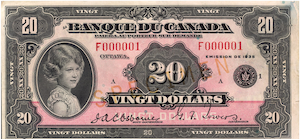1882 Barcelona, Architecture: The first stone of the Sagrada Familia cathedral was laid. It is said today that in another twenty years it might be finished, or so we were told in 2018. It is an astonishing building and the story of Antonio Gaudi is even more compelling. Been there, seen that. We thought we were cathedraled-out until we got here. It is breathtaking in and out and like nothing else I have ever seen.

1931 Carson City, Politics: Nevada legalised gambling in a bid to overcome the Depression. In the next year it legislated the easiest divorce laws in the United States to add divorce-tourism to gambling-tourism. Now as then gambling taxes are the bulk of the state’s income. It also got gangster-tourism in 1959 when organised crime left Havana and found a new headquarters.

1932 Sydney, Transportation: The ribbon was cut to open the Sydney Harbour Bridge. Francis Edward de Groot put in an appearance. Later the Governor-General dismissed the elected premier of New South Wales for defaulting on repayments on loans to British banks to build the Bridge in the Great Depression. Was there any connection between the two events? Speculation on this subject has been the subject of many works of fact and fiction and some in which they authors make no such distinction. Been over that bridge many a time.
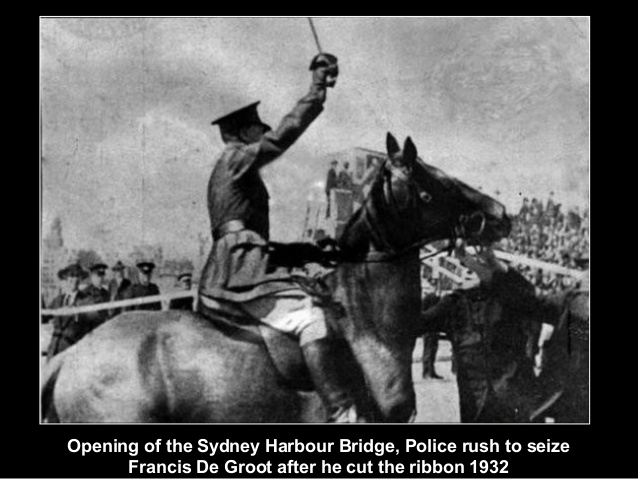
1966 College Park (MD), Sports: An unheralded Texas Western University basketball team defeated Adolph Rupp’s University of Kentucky dynasty in the NCAA national championship game. It was a 10:1 upset win for the Miners from Texas Western. Miner Coach Don Haskins violated the unwritten rule and started five black players against Rupp’s all-white aristocrats of the Blue Grass. Rupp had never had a black player on his many teams and intended to keep it that way. (See ‘Glory Road’ (2006) for an entertaining interpretation of this game.) At that time no college, no professional team had ever started an all black line up, regardless of ability or context, in any sport, still less in a nationally televised championship game before a sold-out lily white audience in a gymnasium in the south. Haskins knew the unwritten rule, but he wanted his team to win and after discussion with all the players (because they — black and white — would bear the brunt of the reaction) he put his best five on the floor, and they won 72 – 65. The Kentucky team included future NBA stars Pat Riley, Louie Dampier, and Larry Conely. None of the Miners made it to the NBA.
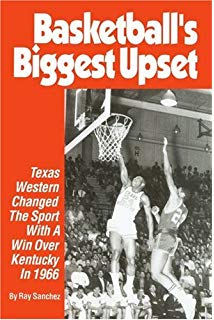
1991 Tempe (AZ), Sports: When Arizona refused to recognise Martin Luther King Day, National Football League Commissioner Paul Tagliabue terminated an agreement to hold the 1993 Super Bowl in Phoenix and moved it to the Rose Bowl in Pasadena. Arizona Senator John McClain had campaigned for a referendum to accept MLK day but not even his prestige prevailed. The reaction in Arizona was one of outraged innocence while Phoenix lost an estimated $100 million in revenue. What do NFL Commissioners do these days?

18 March
1325 Mexico, History: The legendary date for the foundation of the Aztec capital on the island in Lake Texcoco in the Valley of Mexico. The entirety of the Valley is now Mexico City. Been there and been overwhelmed.

1852 New York City, Finance: Henry Wells and William Fargo incorporated a shipping company that in time became a bank. They were inspired by the opportunities of the 1849 California Gold Strike. Wells Fargo shipped gold but also began to store it for clients and issue notes for it. Then it began trading the notes. It became much storied because it travelled far and wide. I have had two account with WF, one a long time ago in California, and another more recently in Nebraska.
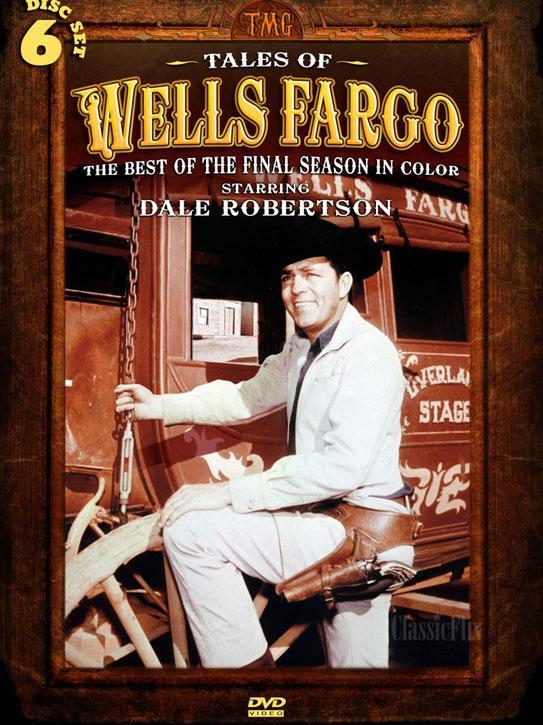
1931 Montreal, Techology: Jacob Schick sold the first electric razors providing millions of men with the excuse of a shave. He spent ten years in the army and hated cold water shaving. His solution was to shave without water. Users have not had a close shave since but many skin rashes from pressing hard. Still it was an advance compared to the lethal straight razor of the day. And it offered dry shaving which was convenient for use in the car when battery powered versions appeared.

1959 Honolulu, Politics: In far Washington with the stroke of a pen President Dwight Eisenhower made Hawaii the fiftieth state. The back story is that Ike was reluctant make Alaska a state because he saw it as front line with the Soviet Union and wanted Federal powers there to be unfettered. But Alaska and Hawaii had made common cause in agitating for statehood, and Congress would not vote for one and not the other. After many consultations, he conceded the point with his usual good humour. Been to Hawaii many times, so many that we have lost count, and plan to go again in May.
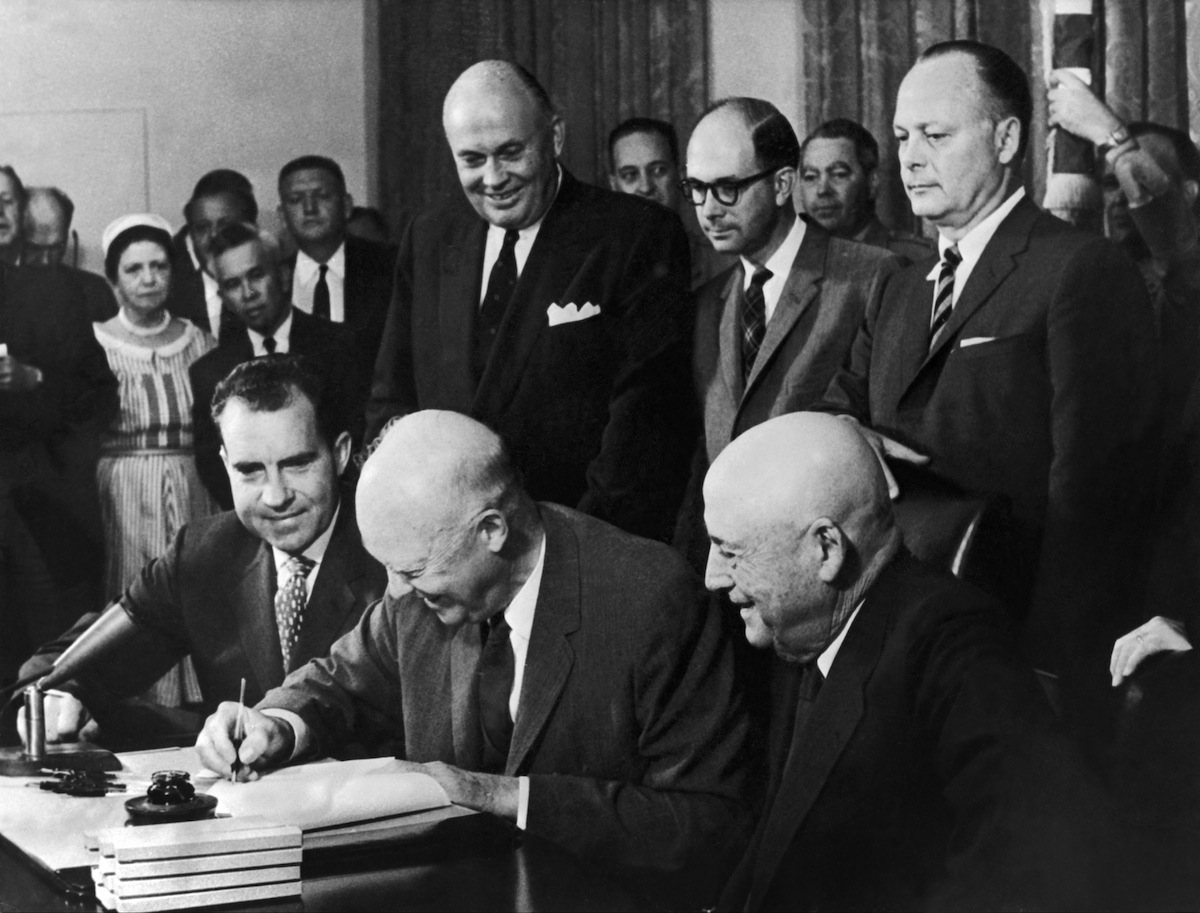
1965 Cosmonaut Aleksei Leonov exited the spacecraft Voskhod 2 for twelve minutes. He is the first of our kind to float in space. Leonov worked in the Soviet space program for many years, training others after his own flying days ended. Below is a selfie he took. A review of a super Soviet film about Salyut 7 is discussed elsewhere on this blog.
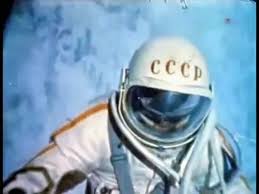
Robert Harris, ‘Cicero Trilogy: Imperium (2006), Lustrum (2009), and Dictator (2015).’
Genre: fiction, biography
GoodReads meta-data is, in the order listed above, 496, 452, and 544 pages, totalling 1,492 pages, the trilogy as a whole is rated 4.6 by 308 litizens. Each of the separate titles has an entry on GoodReads, as well, with a separate rating for detail hunters.
Verdict: Robert Harris is a genius at such historical fiction.
‘What nation has ever erected a statue to a man because he was rich?’ Sorry Clive Palmer but there it is.
‘A home without books is a body without a soul.’
For reasons only known to the high priests of publishing, the separate novels have different titles in the USA and UK editions to confuse librarians, readers, and buyers. Beware.
The three titles of this trilogy offer the reader an eye witness to the long fallout of the Roman Republic as experienced by Tiro, slave to Cicero. The author’s premise is that long after the events, Tiro wrote down what he saw and heard, making use of the extensive notes he had taken along the way, as well as his prodigious memory. The result is a biography of Cicero in all but name. Well, I read it that way.
Tiro was Cicero’s confidential secretary and they were seldom apart in waking hours for forty years. Cicero had a mania for detail and wherever he went, Tiro was there to take notes of everything said by Cicero and others. These notes were possible because Tiro had devised a shorthand notation that allowed him to keep pace with even the most garrulous speakers. Tiro is credited with the ampersand ‘&’, the abbreviations etc, NB, i.e., e.g., and much more. Xenophon had some primitive version of shorthand nearly four centuries earlier but none of it survives. He used it for notes on his campaigns.
Tiro’s written records were a novelty and it often gave Cicero an edge against his numerous opponents, rivals, and fellow travellers. Tiro’s perspective allows the author some distance from the subject, while making clear Cicero’s towering achievements, his errors, foibles, and lapses are there to see.
Cicero was a wordsmith and much of the novel takes the form of dialogue and even speeches, yet it is so well judged that it does not seem wordy, nor does the pace slow, despite the verbiage.
Other intellectuals like Thomas More, Niccòlo Machiavelli, Alexis de Tocqueville, John Stuart Mill, and Max Weber, all had political careers, but none of theirs was anything like Cicero’s. A country bumpkin, he rose steadily with ambition and ability in the Roman Republic. HIs rise is the more remarkable for his disinterest in the sword and his lack of money, normally the keys to success. What he had in plenty was words with which he often found a high ground unseen by others quick to the sword or awash in money.
His legions were his words, and by them he rose and survived, often against the odds, and occasionally cut down his enemies. If he finally lost to the sword at sixty-two he mused that having lost the past and the present, his words might still win the future: the judgement of history. In that he was right. We know him, his words, and his fame but those of few of his many enemies.
He also became a household name then and now, sort of. Great oratory, like great poetry or music, is a distillation of emotion into an exact form. But to convince other he himself had to be convinced, and part of the story here is how he convinced himself of this course or action and that, sometimes in contradiction to one to the other.
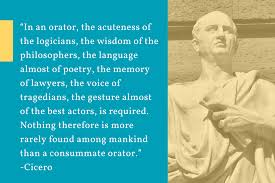
He was neither a demagogue nor a patrician, but at times allied with each. At times one faction used him and at other times he used that faction. He steered toward the best interest of Roman, and that chiefly was stability without civil war and with civic freedom. His incessant search for a compromise brings to mind another orator, Henry Clay. In his flexility in trimming to steer to the distant shore of peace he likewise brings to mind another Kentuckian, Abraham Lincoln. Cicero had few principles but he had a goal that determined his method.
Seeking stability meant making strange bedfellows, and changing them from time to time. Patronage, when he had it, was used to divide and confuse enemies, not to reward friends, and later that tactic cost him friends.
He lacked the consistency so loved by the simple-minded of journalism. The straight line is seldom the shortest way between the here-and-now and peace in the world of politics.
He revelled in the political world: ‘Politics is history on the wing! What other sphere of human activity calls forth all that is most noble in men’s souls, and all that is most base?’ Hmm, well most major sports now fit that bill but….
The best analogy for statesmanship in Cicero’s opinion is ‘navigation – now you use the oars and now you sail, now you run before a wind and now you tack into it, now you catch a tide and now you ride it out. ‘Just as the purpose of a pilot is to ensure a smooth passage for his ship, and of a doctor to make his patient healthy, so the statesman’s objective must be the happiness of his country. One merely adapts to circumstances as they arise.’ Navigating politics takes years of skill and study, not some manual written by a deep thinker.
Into the mix of the Roman Republic came a lightning bolt named Julies Caesar wearing the mask of a wastrel while scheming for an even bigger prize than Cicero ever imagined. And the rest is history….
Cicero succeeded beyond his wildest dreams but his cursus honorum to success left many discarded allies, out-distanced rivals, and bred in the bone enemies, and with success Cicero changed, became complacent, over confident, and even, surprisingly for this restless man, lazy. Meanwhile, his enemies accumulated. In semi-retirement he was no longer a player but he was a symbol that those enemies, some of them patricians and others plebeians, could use to arouse followers, the discarded allies and the beaten rivals.
Then the final rupture came and he came back into a no-win situation where this wily old fox was outwitted by a gangling teenager called Octavian.
Among the vast cast of characters there is the anti-Cicero, namely Cato, who lived like a pauper, despite his great wealth, and embodied his uncompromising Stoic philosophy. When he learned that Caesar would arrive the next day he did as he advised others to do: he bathed, dined, read philosophy, and then fell on his sword to commit suicide. N.B. Cato did not bathe often and seldom ate more a few olives.
The history is well known and Harris takes some liberties with it to make a coherent story seen from Tiro’s point of view by occasionally back-filling. In lesser hands these occasions would have seemed intrusive and didactic but not so here. There is also some fiction in this work of fiction.
A patient reader finds many rewards in the descriptions of the time and place, and in Cicero’s insights into the world of Roman politics. Here is a sample of Cicero’s perspective on Roman democracy, such as it was. ‘You can always spot a fool, for he is the man who will tell you he knows who is going to win an election — an election is a living thing – you might almost say, the most vigorously alive thing there is – with thousands upon thousands of brains and limbs and eyes and thoughts and desires, and it will wriggle and turn and run off in directions no one ever predicted.’ And that living zoological aspect of elections is what Cicero found so fascinating. He added that elections in the end were ’perhaps one of the things that killed the republic: it gorged itself to death on votes.’
Or consider his remarks on history: ‘To be ignorant of what occurred before you were born is to remain always a child. For what is the worth of human life, unless it is woven into the life of our ancestors by the records of history?’
Those readers who know these Romans and these times through Shakespeare and the many derivations from the Bard, will find a harder and darker reality in these pages. Shakespeare, too, took liberties for his purposes, because he was not writing history. That is fine, the problem is some naive readers take it that way, as the same naive viewers take a film like ‘Dunkirk’ (2016) to be history when it certainly is not.
It is one of ironies of fate that most of Cicero’s many books are lost, destroyed in the debacle of the fall of the Roman Republic and then the divisions and destruction of the Roman Empire. While Plato’s works, five hundred years earlier, survived, having been widely disseminated before the collapse of the Greek world.
I have never managed to read more than a few pages of Cicero. I found him a high context writer and I did not have the context. I have looking for the copies I have on the shelf, and maybe…. My favourite Roman from this period is Decius Caecillus Metellus the Younger, who does not appear in Harris’s pages, but in the pages of the escapists series of krimis by John Maddox Roberts.
17 March
0492 Saul (Ireland), Religion: St Patrick’s Day marks his death on this day, according to legend. The first St Patrick’s Day parade was held in New York City by soldiers of an Irish regiment in the British army in 1765. We saw the green river once in Chicago.
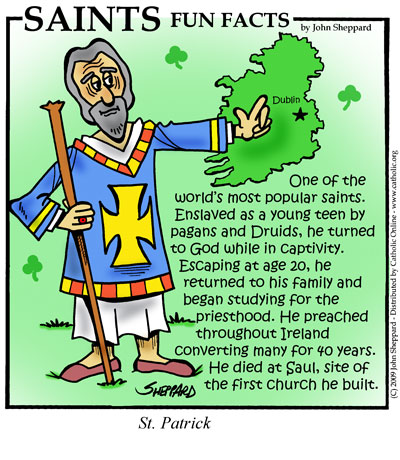
1521 Manila, History: Ferdinand Magellan reached the Philippines in a worldwide search for envelopes.

1845 A Bristol man, baker Henry Jones, patented self-raising flour. Its success within a year led to his appointment as purveyor to Queen Victoria. He had developed it as an alternative to the hardtack issued to British sailors, and spent years trying to convince the Admiralty to try it. Only when Florence Nightingale took up the cause did the Admiralty relent, and fresh bread became available on Royal Navy Ships.
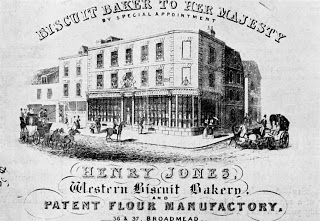
1901 Paris, Art: After his death seventy paintings by Vincent Van Gogh were exhibited and caused a sensation with their electric energy. His brother Theo had organised the display. A few examples of his work had been exhibited before in the Salon des Independents, but had hardly been noticed. Noticed they were this time. We saw a splendid and informative display of a few of his paintings in Chicago a time ago.

1960 Paris, Cinema: ‘À bout de souffle’ (‘Breathless’) directed by Jean-Luc Godard opened. The title refers to the final moments of the last scene.* It was the first of the Nouvelle Vague films and caused a sensation with its attractive nihilism. The dean of more reviewers Roger Ebert included it in his “Great Movies” list in 2003, writing that, “No debut film since Citizen Kane in 1942 has been as influential,” calling revolutionary its “headlong pacing, its cool detachment, its dismissal of authority, and the way its narcissistic young heroes are obsessed with themselves and oblivious to the larger society.” The film itself is obsessed with films and contains references to ‘Forty Guns,’ ‘Pushover,’ ‘Where the Sidewalk Ends’, ‘Whirlpool,’ ‘Bonjour Tristesse,’ ‘Maltese Falcon,’ ‘The Glass Key,’ and ‘The Harder They Fall.’ In its turn it has influenced innumerable subsequent movies.
*Belmando last line has driven cinemistas into frenzies of interpretation since. The translations are many and all I have seen miss the point, something that must have amused Godard since he was sure all critics were idiots. Jean-Paul Belmondo comments on the absurdity of life at the end, not on Jean Seaberg’s betrayal. That was to be expected. That’s my take on it.
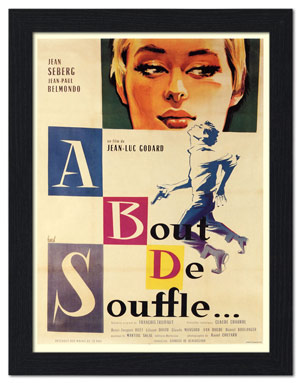
16 March
1850 Boston, Literature: National Hawthorne published ‘The Scarlet Letter.’ In the popular culture this powerful foray in social criticism has been reduced to a soap opera. One of my students wrote a superb thesis on it.
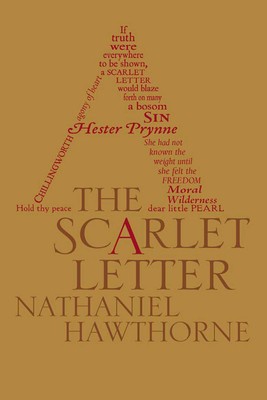
1861 Austin, Politics: Founder of Texas Governor Sam Houston refused to acknowledge the secession of Texas and was impeached. Upstairs in the Hall the firebrands voted to leave the Union in a wild scene, while downstairs Governor Houston sat reading Cicero. When presented with the bill, he refused to sign it. Back upstairs ran the democratically elected mob which ousted him for a more compliant alternative. A biography of Houston is discussed elsewhere on this blog.
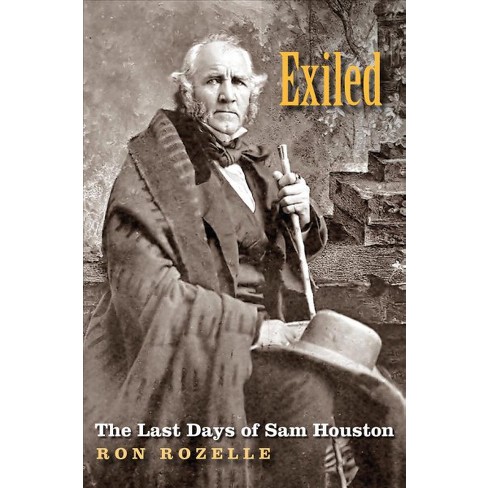
1867 Glasgow, Medicine: Quaker Joseph Lister published a manual on antiseptic surgery in ‘The Lancet.’ He became a surgeon though his medical education was limited by prejudice and barriers against godless Quakers. His innovations were widely disparaged by other surgeons. But the survival rate of patients led to a demand his services. This demand led other surgeons to apply his methods. Thank you Dr Lister.
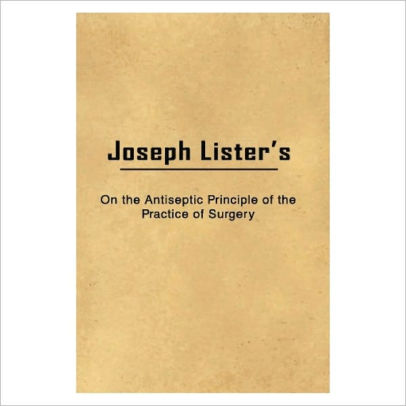
1900 Heraklion (Crete), History: Arthur Evans found the bronze age city of Knossos, home of the legendary Minotaur. Discoveries there re-wrote much of ancient history in Linear B. It remains Europe’s oldest city tracing back to 7000 BC.
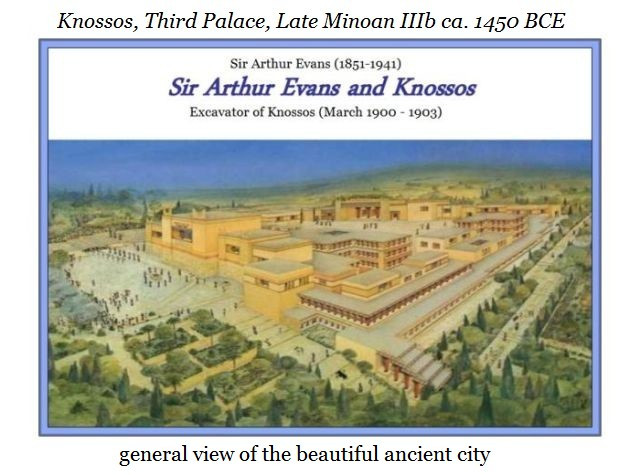
1926 Auburn (MA), Technology: Robert Goddard launched the world’s first liquid-fuel rocket. Its flight of a few seconds reached 40 feet. Inspired by H.G. Wells stories Goddard had been experimenting with rockets for years using gunpowder. This flight was made while he was a PhD student at Clark University. At times the Smithsonian funded his research into methods to reach the stars. One of the rocket facilities at the Johnson Space Center in Houston is named for him which we saw a few years ago.

15 March – The Ides.
44 Julius Caesar was assassinated. There is a discussion of Cicero in a book review elsewhere on this blog.
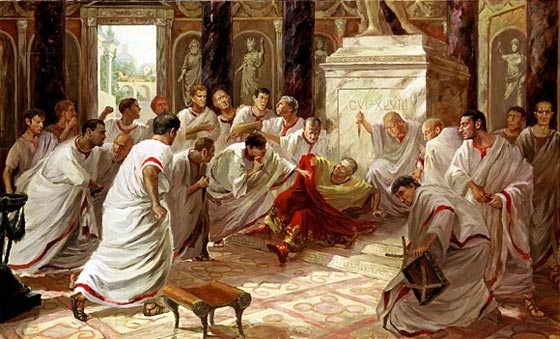
1778 Vancouver, History: Captain James Cook sailed into Nootka Sound and charted Vancouver Island. To confuse matters the city of Vancouver is not on the island of that name. Victoria, the provincial capital, is on the island, while Rain City Vancouver is on the mainland. Been to Vancouver many times.
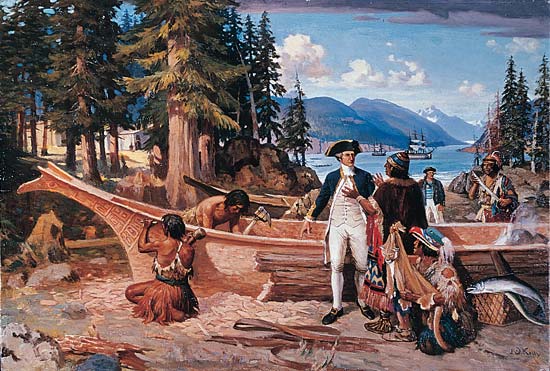
1877 Melbourne, Sports: The first international cricket match in Australia was played at the Melbourne Cricket Ground against England. In those days the MCG was a paddock and not the temple of indulgence it is now.
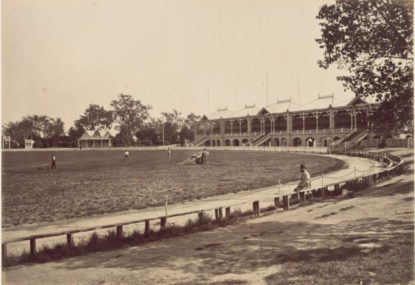
1907 Helsinki, Politics: Finland legislated the vote for women, the first place in Europe to do so. The women below were all elected to parliament in that year. At the time Finland was a Grand Duchy of Russia, and the parliament was strictly advisory, but nonetheless it was a parliament and there were elections with universal suffrage. We enjoyed a few busy days in Helsinki in 2016. A biography of the Greatest Finn, Karl Mannerheim, is discussed elsewhere on this blog.
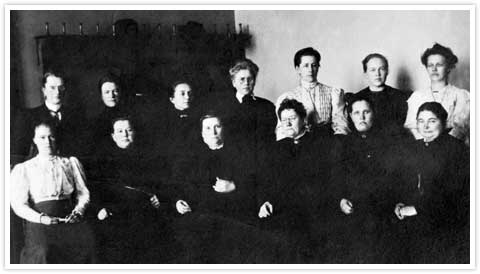
1985 Boston, Technology: Symbolics Computer Corporation registered the first ever domain name: symbols.com. There are a billion roman names now registered and an active market in trading them. Went through the computer museum in Boston about that time.

14 March
1489 Nicosia (Cyprus), History: Venice wrested the island into its empire.
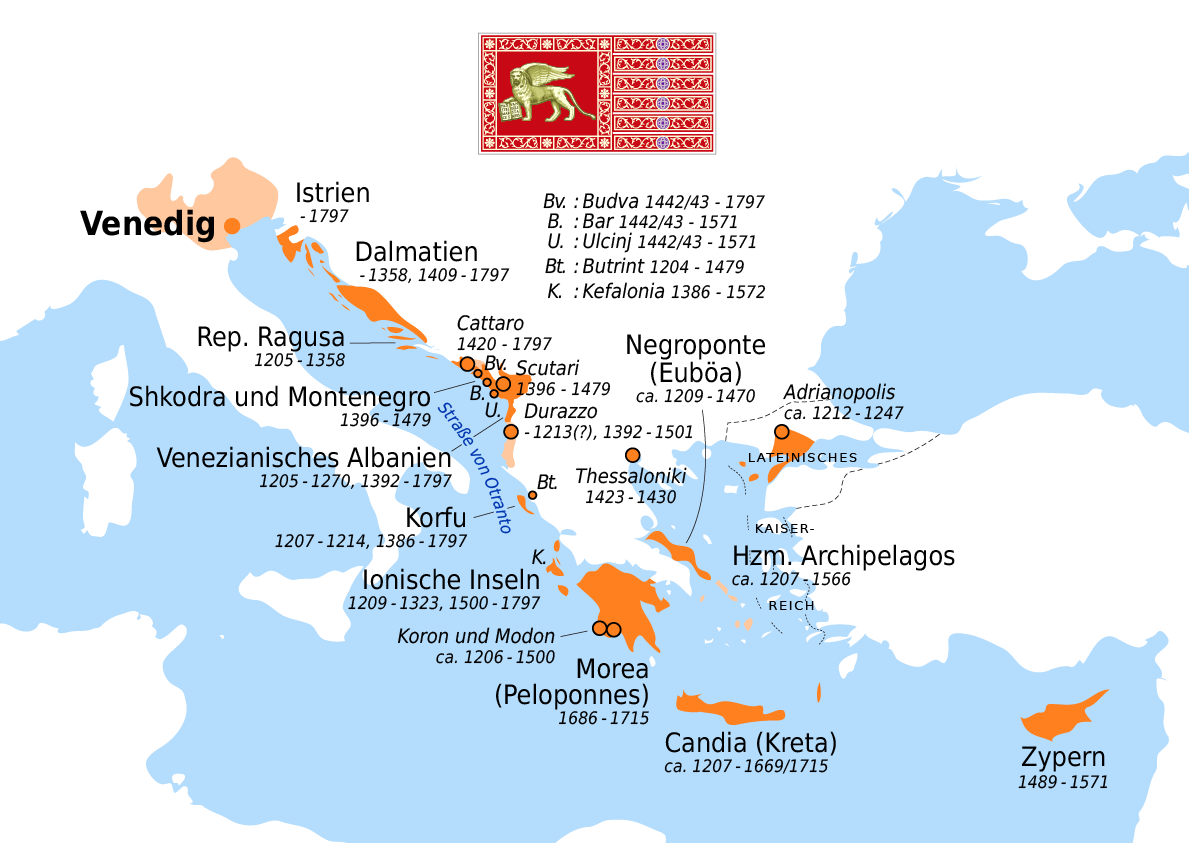
1592 Nerdville, Science: Celebrated as Pi Day because when written in American format of month, date, year, this is 3/14/1592 at 6:53.59 am and pm, which corresponds to the first twelve digits of pi: 3.14159265359. It has two Pi’s on one day! That is overachieving.

1794 Savannah (Georgia), Technology: Eli Whitney patented the cotton gin which made profitable processing cotton on a large scale, leading to the plantation and slave economy of the south. Such was not his intention when he watched kittens playing and transferred the use of their claws to a box in which to clean cotton.
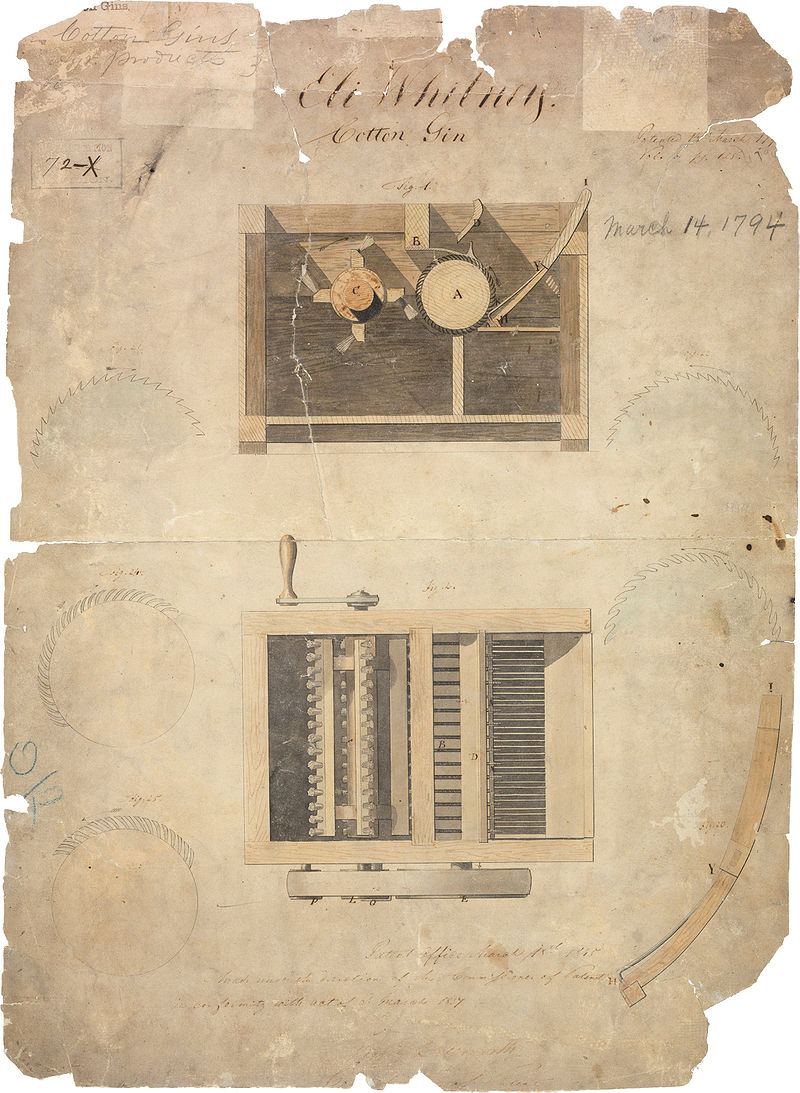
1919 Seattle, Literature: Prolific western writer Max Brand published his first novel, ‘The Untamed,’ about ninety other novels followed. Frederick Faust used twenty-one pen names, but Max Brand was the first one. He was largely an autodidact through reading. He also created Dr Kildare in a dozen more medical thrillers. A war correspondent in World War II, he was killed at Anzio in Italy.
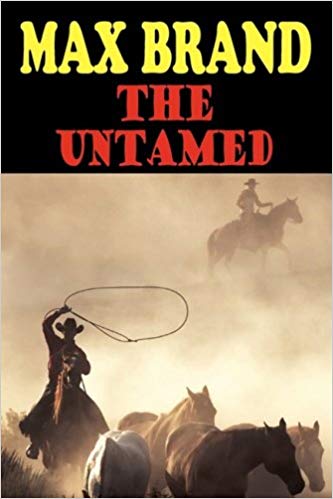
1942 New Haven, Medicine: Drs. Orvan Hess and John Bumstead pioneered the use of penicillin for the first time in treating a patient, Ann Miller, who recovered quickly and lived to be 90.
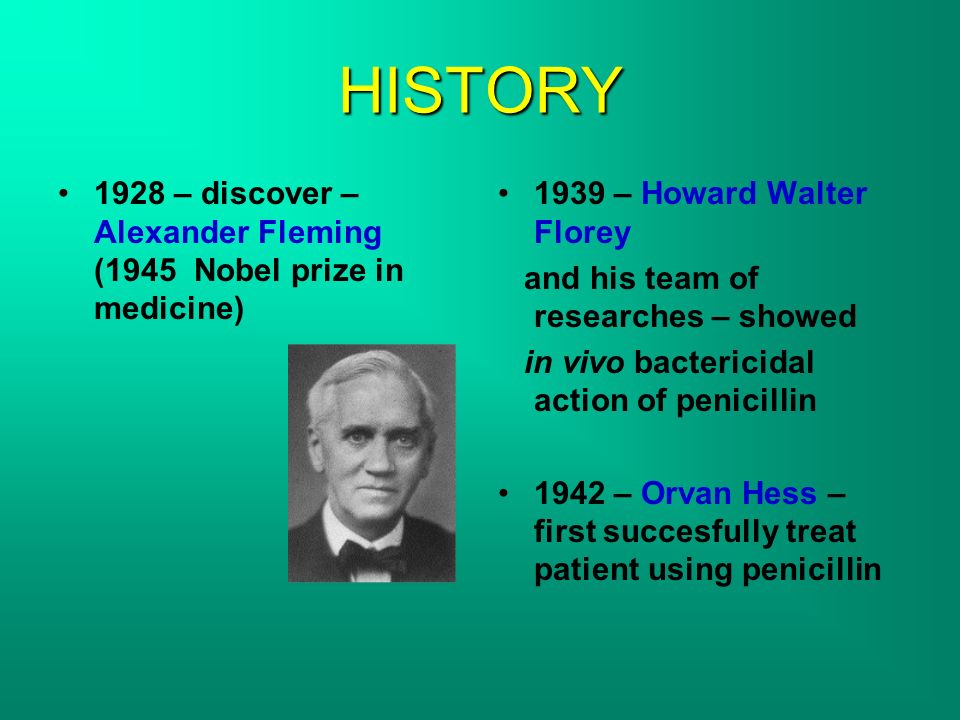
13 March
1781 Bath, Science: Hannover-born, Frederick William and Caroline Herschel espied Uranus. They thought it was a comet for a time. He had built the telescope they used and they spent nine years mapping the stars. During this work, Uranus appeared. It was the first planet discovered since antiquity. It caused a sensation and Fred Bill was soon appointed Court Astronomer and funded for more research. In the daylight hours he was a professional musician on the organ.
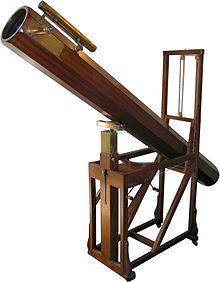
1877 Farmington (Maine), Technology: Chester Greenwood patented earmuffs for cold weather wear. An avid ice skater, to stay on the ice longer at age fifteen he had asked his grandmother to sew fur tufts between loops of wire. Others in Farmington asked for the same thing. He went into business within two years, and for sixty years Greenwood Muffs was the major employer in the region.
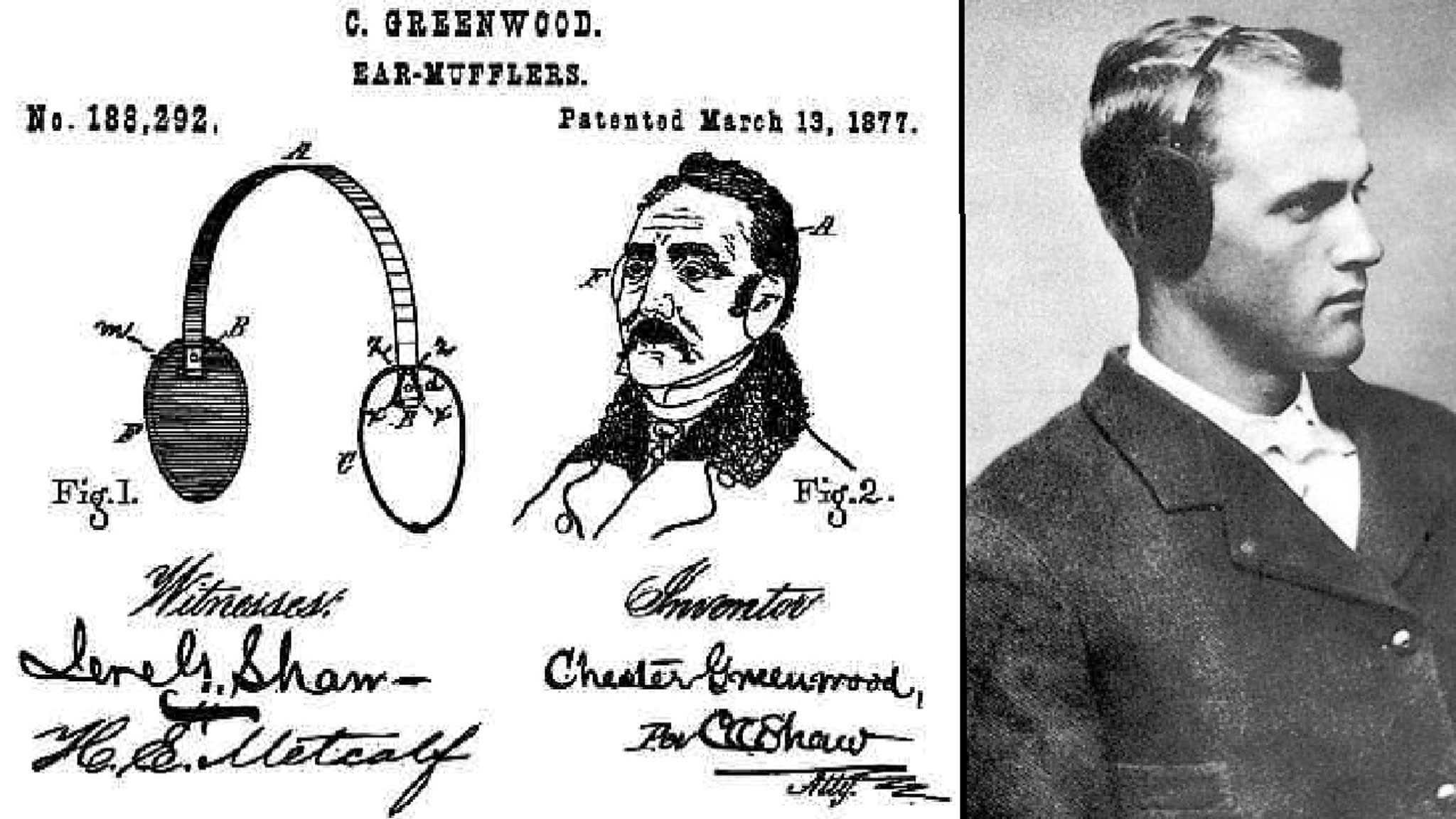
1884 Chicago, Technology: The USA adopted standard time. Until then all time was local, except for railway time, and the train companies, e.g., Penn Central used Allegheny Time, then there was Chicago Time, Columbus Time, Jefferson City Time, El Paso Time, Omaha Time, Ogden Time, and more. Confusion reigned and accidents happened. As early as 1870 a congressman had proposed four time zones, and that later took life when talk occurred of a worldwide time standard based on the Greenwich meridian, long used for ocean navigation. The benefits were many, including better weather forecasts. The heads of the consolidated railroads agreed to five zones for North America. The fifth was Atlantic for the Canadian eastern maritime provinces and Newfoundland. This agreement was commercial, and it was not until 1918 that is was legislated in the United States. There was vigorous opposition at every step by locals who were against for a host of silly reasons, including the fading of the curtains.

1956 Kayenta (Arizona), Entertainment: John Ford’s tale of loss and redemption ‘The Searchers’ was released. It has a claim to being the greatest Western movie. Martin Scorsese called it a poem of hate. Replete with Ford touches, sublime and ridiculous. Most of all, starring Monument Valley and the Grand Tetons. Largely filmed near Kayenta in Arizona. I watched it on the wide screen at Dendy a couple of years ago and discussed it on a post elsewhere on this blog.
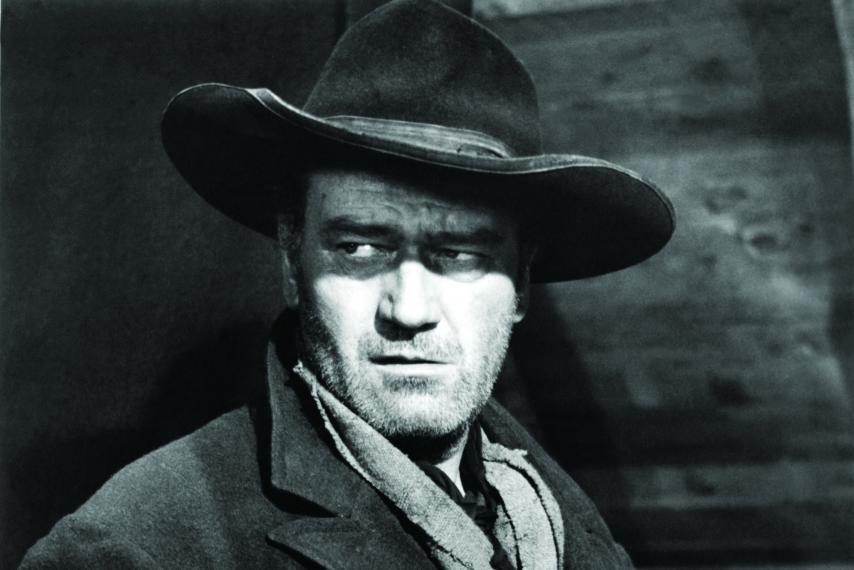
2012 Chicago, Education: Encyclopaedia Britannica announced that it would no longer publish paper volumes. It has been edited and published in the United States since 1901 but has continued to use British spelling and punctuation rules. Precious or what? Over the years I have met a couple of scholars who wrote entries for it and I was impressed by the skill with which they compressed complex subjects into short entries. The old adage applied: A short essay is harder to write than a long one.
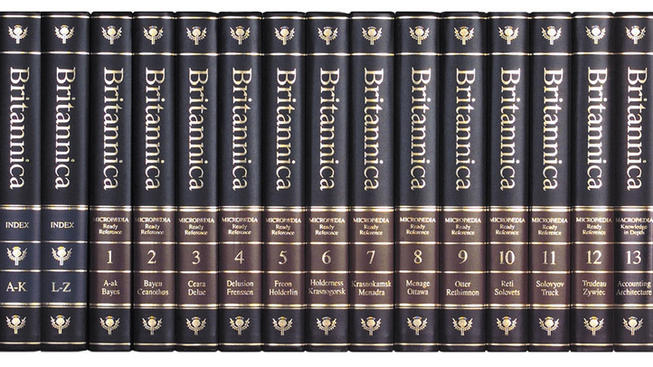
12 March
1901 New York City, Education: Andrew Carnegie gave the City $USD 5.2 million to build branch libraries.Forty-one were built. He once said that in ‘a library is the best society the world offers for there are the great and the good.’ Today that sum would be in the order of $USD 154,000,000. Match that Bill Gates! By the way, Carnegie funding built 1,687 libraries in the United States, including the one I grew up with Hastings on the Platte.

1921 Perth, Politics: Edith Cowan of Geraldton was elected to the Legislative Assembly of Western Australia, making her the first woman in an Australian parliament. After serving as magistrate in the Perth Children’s Court for nearly twenty years, she had defeated the incumbent Attorney-General in the constituency of West Perth. She appears of the sunbaked Oz $50 note.

1933 Washington, D.C., Politics: Eight days after inauguration, President Franklin Roosevelt gave the first fireside chat over the radio, and turned it into a political instrument. Over twelve years, he did just thirty of these talks, but each attracted a vast audience. Often the single radio in a community was tuned in for the whole population. His manner was relaxed, simple, and direct. The term ‘fireside chat’ was coined by a journalist describing the effect of the broadcasts on listeners. Specimens can be found on the Library of Congress web site.
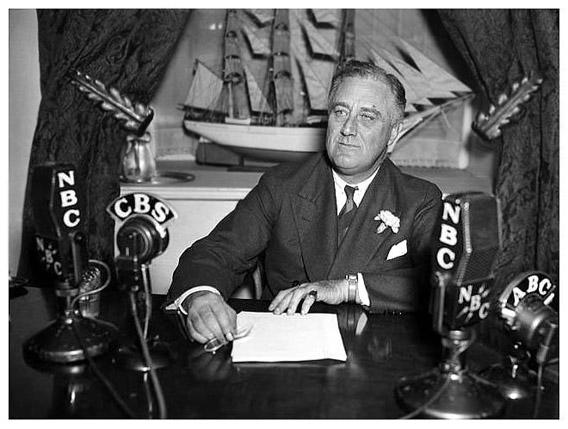
1968 Concord (New Hampshire), Politics: Poet and Senator Eugene McCarthy astounded pundits, and perhaps himself, with 42% of the vote in the state’s Democratic primary against incumbent President Lyndon Johnson who won with 48%. It was humiliating victory and in just over two weeks Johnson withdrew before the next primary occurred.
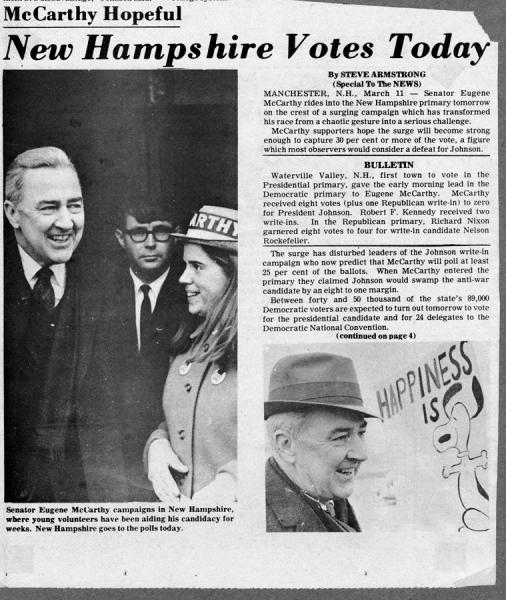
1999 Warsaw, Politics: One time cornerstone member of the Warsaw Pact, Poland joined NATO. Other Warsaw Pact members followed in quick succession and with neither a bang nor a whimper the Warsaw Pact disappeared. Who would have thought that in 1988? The green on the map represents the Warsaw Pact in 1990 just before the fall of the Berlin Wall.

11 March
1789 Washington, D.C., Politics: Pierre Charles L’Enfant began to layout the District of Columbia. Among the surveyors who worked closely with him was Benjamin Banneker, a free black man from Baltimore. While Enfant’s name is everywhere in DC, Banneker is all but forgotten. There is an entry for Banneker on Wikipedia which seems to be contested in the culture wars.

1818 London, Literature: Mary Shelly at age twenty-one published ‘Frankenstein, or, the Modern Prometheus.‘ It is credited as the first science fiction novel. While the creature is gentle and intellectually gifted, he is hideous in appearance and then as now appearance is all. Pitchforks, anyone?
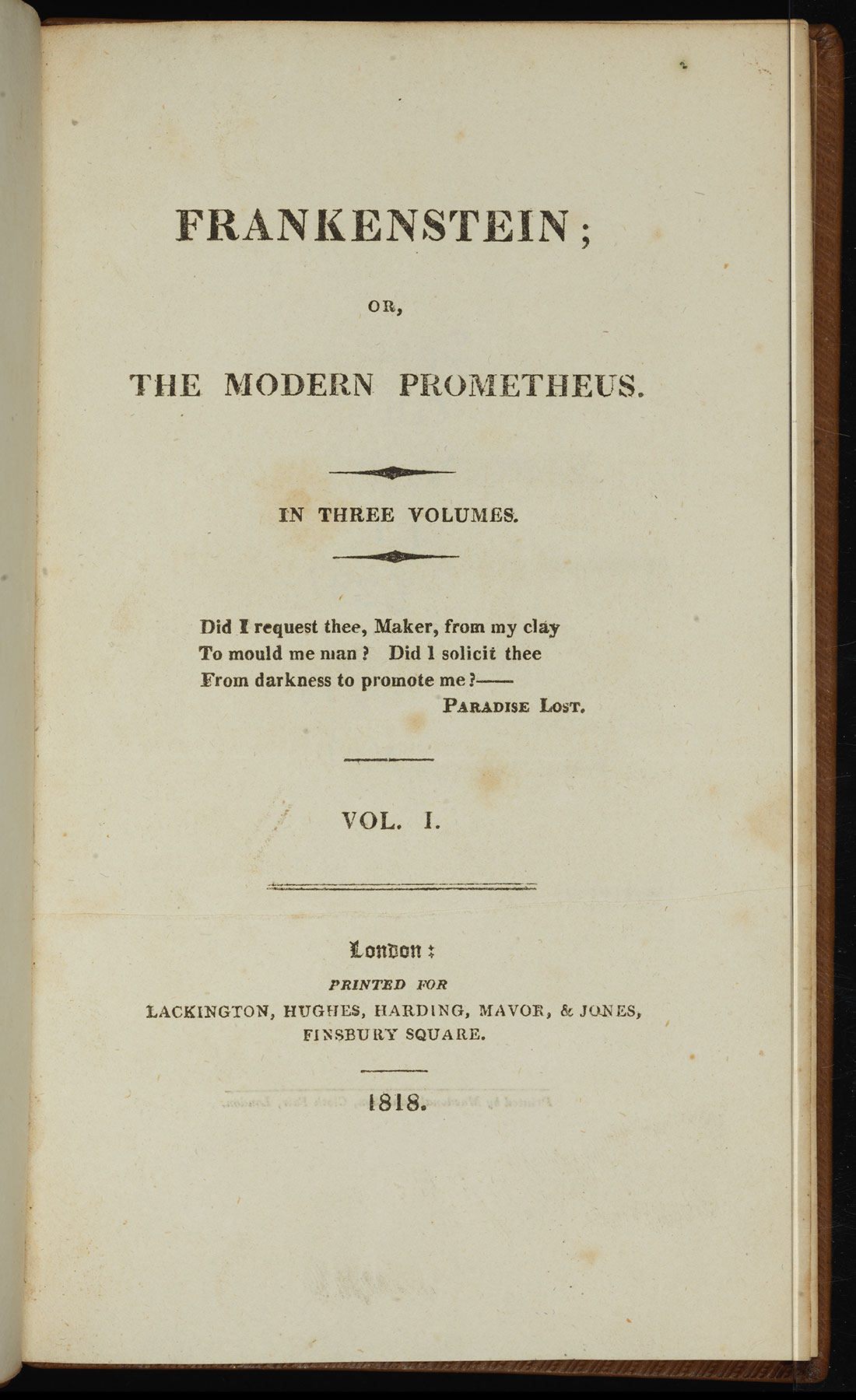
1893 Buenos Aires, Music: Carlos Gardel arrived in Argentina, a babe in arms. A baritone, he become the single most famous exponent of the songs of the tango. The dramatic phrasing of his lyrics made miniature masterpieces of his hundreds of three-minute tango recordings. Many tango tunes were written specifically for him. He had started his career by singing on street corners, cafes, bars, and private parties. In 1944 while on tour, he was killed in a plane crash, and Buenos Aires went into mourning for a week. There are recordings on the Wikipedia entry. Carlos Saura’s insightful history of Argentina called ‘Tango’ (1998) features Gardel’s songs.
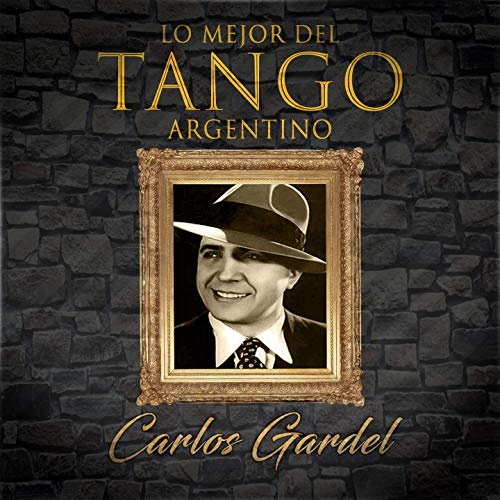
1918 Moscow, Politics: To leave behind the Tsarist heritage, the new revolutionary government declared Moscow once again the capital of Russia. There was also concern that St Petersburg was vulnerable to attack from the sea by the foreign powers supporting the Whites.

1935 Ottawa, Economics: The Bank of Canada began issuing paper money in matching unilingual forms, some in English, some in French. As remains true of much in Canada, the French and the English are seldom on the same page. Some sources say the Canadian dollar went into use a little later.
